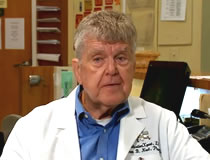November 19th, 2012
Advair: How Safe Is This Drug ???
Advair: How Safe Is This Drug?
By John Fauber, Reporter, Milwaukee Journal Sentinel/MedPage Today
Published: November 18, 2012
The 2001 product launch of the asthma drug Advair (fluticasone/salmeterol) was a lavish, Las Vegas affair.
Using images of a slot machine to illustrate their message, top GlaxoSmithKline executives took the stage in front of thousands of assembled sales reps. "There are people in this room who are going to make an ungodly sum of money selling Advair," one executive told the group.
He was right.
The Serious Business of Asthma
Millions of people with asthma, including many children, have gone on the drug and, according to data from IMS, Advair sales have exceeded $4 billion every year since 2007.
Yet even as profits mounted evidence began to emerge from independent medical studies and court records suggesting that the drug can be dangerous, especially to children and that overuse of the drug exacerbated the danger.
Asthma is not a benign condition.
According to the U.S. Centers for Disease Control and Prevention, asthma deaths in the U.S. have been declining since the late 1990s. In 2009, there were 3,388 asthma deaths.
The problem appears to be the long-acting beta-agonist salmeterol that is one component of Advair.
Asthma, which affects an estimated 25 million Americans, is caused by inflammation and swelling of the airways in the lungs as well as constriction of those airways. Long-acting beta-agonists, or LABAs as they are frequently referenced, which treat airway constriction, which provides symptom relief, while corticosteroids treat inflammation.
But long-acting beta-agonists have been linked to 1,900 asthma deaths from 2004 through 2011, according to an estimate provided by AdverseEvents Inc., a private firm that analyzes drug side effect data reported to the U.S. Food and Drug Administration. Because of the voluntary nature of those adverse event reports, it is likely that estimate is low.
In 2008 a different analysis by a researcher with the U.S. Food and Drug Administration estimated the drugs contributed to 14,000 asthma deaths from 1994 through 2007. Advair, approved in 2000, is by far the biggest seller.
The story of how a potentially dangerous drug became commonly prescribed comes from a Journal Sentinel/MedPage Today review of transcripts of FDA hearings, financial disclosures, medical journal articles, treatment guidelines and a U.S. Department of Justice complaint against GlaxoSmithKline.
Birth of a Blockbuster
Advair was considered a breakthrough in convenience because it combined the GlaxoSmithKline two effective agents, salmeterol to treat airway constriction and the corticosteroid fluticasone to treat inflammation.
Advair and similar drugs are considered appropriate treatment for severe, treatment-refractory asthma that is not controlled by corticosteroid treatment alone. But a 2010 study by Medco Health Solutions found nearly two-thirds of mild asthma patients were taking the combination drug -- often without trying a steroid first.
One theory for why Advair and similar drugs carry increased risk of deadly attacks is that the long-acting beta-agonists may mask worsening inflammation in the lungs. As a result, the patient "feels better" even as the disease worsens, thus setting the stage for a catastrophic asthma exacerbation. Assessing Risk, Risking Safety
In 2010, when the FDA approved more large-scale safety trials of the drugs, some of its own researchers called doing so unethical because it could put tens of thousands of patients at risk, according to a transcript. .
Such trials would be especially dangerous for children, agency physician Andrew Mosholder, MD, warned, noting children "can't give consent themselves and one could argue the ethical burden is greater to protect."
The trials, which are not expected to yield results until 2017, will involve 46,800 adults and adolescents aged 12 and older. A separate trial involving 6,200 four- to 11-year-olds also is being conducted.
At a 2008 FDA advisory panel reviewing the use of the drugs, agency physician David Graham, MD, questioned whether it was worth putting an entire population on the drugs just to find that occasional patient who gets better control of their asthma, according to a transcript of the meeting.
"We have no way of identifying who's going to have that miraculous response to Advair," he said, "just as we have no way or predicting who's going to end up in the cemetery because of Advair."
Graham has a long-standing reputation as a FDA whistleblower, who has testified at Congressional hearings investigating the marketing of Merck's arthritis pain drug Vioxx, withdrawn after it was linked to heart attacks, and the diabetes drug Avandia, a GlaxoSmithKline drug, which was linked to increased risk of heart attacks.
FDA spokeswoman Morgan Liscinsky noted in an emailed statement that in 2010, the agency instituted new safety requirements for the drugs, including that they only should be used for the shortest duration necessary to achieve control of symptoms and then discontinued if possible.
In addition, the agency said long-acting beta-agonists should only be used with a steroid. The agency also issued warnings in 2006 about the increased risk of deadly attacks.
Liscinsky said the FDA believes the benefits of the drugs outweigh the risks when they are used properly.
GSK Backs Advair Safety
GlaxoSmithKline spokeswoman Karen Collins said the company stands by the safety and its promotion of Advair. She said the remarks from the Las Vegas meeting -- described in court documents -- were taken out of context, and do not reflect "the company we are today."
"It is absolutely against GSK's policies and practices to inappropriately influence prescribing decisions," she said.
In July, GlaxoSmithKline agreed to pay a record $3 billion to settle criminal and civil allegations filed by the U.S. Department of Justice that it unlawfully promoted several drugs, including Advair.
The government alleged that the company fraudulently pushed Advair as a first-line therapy for mild asthma patients, though it was not approved or medically appropriate for such cases.
In addition, the company paid kickbacks to doctors to induce them to prescribe and recommend Advair and other drugs. The payments included speaking and consulting fees; gifts, travel and entertainment costs; payments for serving on sham advisory boards; and continuing medical education programs, the Justice Department alleged.
Collins, of GlaxoSmithKline, said the company disputes the government's allegations and said there was not a corporate strategy to promote Advair for inappropriate patients.
"The company reached this settlement with the government to avoid the delay, expense, inconvenience and uncertainty of protracted litigation of the government's claims and to put behind us these long-standing investigations of what was, for the most part, very old conduct," she said.
Spreading the Message
There was, however, more than direct marketing turned Advair into a blockbuster asthma drug -- journal publications, treatment guidelines, and professional associations each played a major part.
In 2007, the National Heart, Lung and Blood Institute issued new guidelines for treating asthma that included this recommendation: Long-acting beta-agonists should be the preferred add-on treatment to combine with inhaled steroids, both in adults and children aged 12 and older.
At the time that recommendation was written, 15 of the 18 member writing group had financial ties to GlaxoSmithKline or other companies that market beta-agonists, according to research by the Journal Sentinel/MedPage Today.
The chairman of the panel, William Busse, MD, is a doctor and professor at the University of Wisconsin School of Medicine and Public Health, whose financial relationships with asthma drug makers include years of work as an adviser, speaker and consultant.
At the time the guidelines were issued, Busse disclosed that he worked as a speaker and adviser for GlaxoSmithKline and several other drug companies, though specific amounts of money were not listed.
Another UW professor who served on the panel, physician Robert Lemanske, MD, also had financial ties to the companies. His financial conflicts required that he get a special waiver from the FDA so that he could speak at its 2008 hearing on the drugs.
In emails, both Busse and Lemanske said they followed the panel's rules for transparency and for managing conflicts of interest. Precisely how much they and the other panel members were paid at the time could not be established. Only recently, in the face of new rules passed by Congress, have some drug companies publicly listed their payments to doctors.
From 2009 through 2011, companies that make long-acting beta-agonists paid more than $400,000 to nine doctors on the panel, according a database operated by the watchdog organization ProPublica.
Friends in High Places
The American Academy of Allergy, Asthma & Immunology, benefited:. Since 2008, companies that market long-acting beta-agonists have provided $4.7 million to the group. About $2.6 million of that came from GlaxoSmithKline.
And the AAAAI has not shied away from voicing its support: at a 2008 FDA hearing Stanley Szefler, MD, spoke on behalf of the academy, testifying it would be a disaster if the drugs were taken off the market.
"I don't think you want to ... walk away from this meeting and have a headline that this panel decided to draw back asthma to 20 years ago," Szefler, a doctor with the National Jewish Medical and Research Center in Denver, told the panel members.
Szefler also was a member of the panel that issued the asthma treatment guidelines in 2007. At the time he listed financial relationships as a consultant and adviser to GlaxoSmithKline and several other asthma drug companies. The amount was not required to be listed.
AAAAI president Wesley Burks, MD, said the group has been active in disseminating balanced information about the drugs. On its web site, he said, it clearly mentions the risks and proper use of the drugs.
"As with most medications," Burks wrote in an email, "there are risks and benefits which must be carefully weighed in every situation."
Uncoupling Experts from Industry
Eric Campbell, PhD, an associate professor at Harvard Medical School, said there is an abundant supply of experts without financial conflicts. He said doctors who have worked, as speakers for drug companies should not be allowed to serve on treatment guideline panels.
"Physicians should not be part-time drug salesmen," Campbell said.
Others argue that the most knowledgeable doctors often have financial ties to drug companies -- but acknowledge those ties can color their views.
"It is very hard for many of us to make decisions that are against the American pharmaceutical industry," said David Schoenfeld, a Harvard University medical professor who served on the FDA's 2008 advisory panel and has been a drug company consultant.
Putting a reliable number on asthma deaths and severe attacks caused by Advair and other long-acting beta-agonist drugs has evaded researchers and regulators, in part because overall asthma deaths are declining. Estimates have varied widely.
In addition to the estimate by AdverseEvents Inc. of nearly 1,900 deaths between 2004 and 2011, long-acting beta-agonist products have been the primary suspect in 3,500 hospitalizations, according to the firm. Advair was the drug used in a vast majority of the cases.
AdverseEvents uses its own proprietary software to analyze reports of drug side effects to the FDA. Brian Overstreet, president of the firm, said the FDA's reporting system is voluntary and known for capturing as few as 10% of such cases, so the Advair estimate is low.
The estimate of 14,000 excess asthma deaths between 1994 and 2007 came from Graham, the FDA researcher who warned that Advair might be putting people in the cemetery.
That number is based partly from estimates using findings from two large clinical trials, both of which looked at Serevent as a single agent.
Less Than the Sum of Its Parts
Those estimates were disputed by Collins, the GlaxoSmithKline spokeswoman, who said there were no such deaths in other research involving 18,000 Advair patients.
But the 18,000 number comes from 86 separate clinical trials sponsored by the company.
The fact that so many separate, smaller trials were involved can make a critical difference, especially when looking for unusual occurrences such as asthma deaths, said Sanjay Kaul, MD, who has served on FDA advisory panels.
In large clinical trials, patients are typically divided into groups with similar risk factors such as age, the severity of their disease and the other drugs they are taking -- all of which can affect mortality. That can vary significantly across so many trials.
"Zero deaths reported from 18,000 patients in 86 different trials doesn't supply any evidence of reassurance," said Kaul, a Los Angeles physician who also serves as director of the vascular physiology and thrombosis research laboratory at Cedars-Sinai Heart Institute.
At the 2008 FDA hearing, agency physician Mosholder noted that an estimated excess death rate of one in 700 asthma patients a year is not going to be obvious to doctors who prescribe the drugs, especially when milder symptoms are being controlled.
Fernando Martinez, MD, an asthma specialist at the University of Arizona, and other researchers say the problem stems from the hundreds of thousands of people with mild asthma who should first be put on just an inhaled corticosteroid, but instead are started out on combination products such as Advair.
"I think these medicines do cause an improvement, particularly a subjective improvement, in everyday symptoms," Martinez said.
But while the drugs may be improving everyday symptoms, they may be producing unnoticeable physiological changes in the lungs that make the user more susceptible to a severe asthma attack, said Shelley Salpeter, MD, a California doctor who has researched the danger of the drugs.
"They become very addicting," she said.
This story was reported as a joint project of MedPage Today and the Milwaukee Journal Sentinel.
- September 23rd, 2012
2 Beta-Blockers Similar for CV Event RiskRead - December 22nd, 2012
FDA Issues Pradaxa Valve WarningRead - November 4th, 2014
Cardiovascular Drugs May Up Anaphylaxis Risk Via Mast CellsRead - August 30th, 2012
I Was Always Taught You Control The Pain, Not The DrugRead - August 14th, 2015
Early Opioid Prescription for Back Pain Doesn't Up Risk of Chronic UseRead
Geriatric Nutrition
Without good nutrition, positive drug therapy outcomes are very difficult to obtain, For the best in Geriatric Nutritional Information
Find out more Optima SolutionsContinuing Education
Each month we will post an analysis of specific aspects of government long-term healthcare regulations.
Find out more


